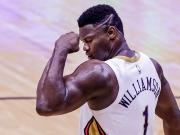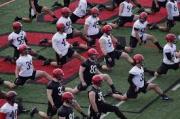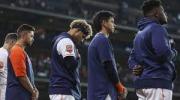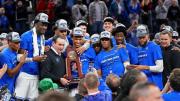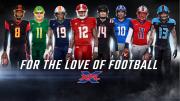Gene Therapy: You Gotta Travel!

by: Gene Clemons
The high school basketball season is interesting. You go to offseason workouts, play in summer leagues, and train; all for the opportunity to try and win a region, conference, district state title. A high school basketball player will average getting home at around seven at night if they are lucky and get the early after school gym time. If they are unlucky, they either wait until later to practice and don’t get home until around nine or they must wake up at five in the morning to practice before school begins. They travel sometimes over an hour away for games during the school week and don’t crash into bed until midnight or later. Many of these student athletes do this because they want to earn an opportunity to play in college. But, for all the hard work they do, most college basketball coaches are not even paying them any attention. The college basketball season starts before the high schoolers get started and ends after high schools have already crowned a state champion. So, when would a college coach have time to leave their program in the middle of a season to go see about any players that are not local? The answer is almost never. I am sure college coaches try to slip in some time when they are on the road or maybe have a few days in between games but the majority of that time is being spent on getting the current team better. So, for all of that sweat and effort most high school seasons go relatively unnoticed by the decision makers in college basketball. So how are these young men getting recruited?
If you are a basketball player and you are not traveling in the offseason with a team, then there is a good chance you will fly under the radar and be missed by potential programs who may be interested in you. Travel ball has become so popular because it is where the college coaches can actually get out and evaluate players in real game situations. Unlike football where all of the camps, combines, clinics, workshops, and 7 on 7 tournaments can’t really give a coach the understanding of what a player can do in-game, travel basketball tournaments provide a live evaluation of players participating in the same game they will play when they go to college. Football mega camps have become popular because of how many college coaches attend but in many cases, you never see the head coaches of the bigger programs there. When you go to the sites of elite travel basketball camps, it is not shocking to see Bill Self sitting next to Juwan Howard waving at (insert famous coach’s name here). That is the normal; and it is not just a couple there, they are there in droves. Hundreds of decision makers decked out in their polo and khaki shorts or their athletics warmups with the various logos of their universities prominently displayed for everyone to see.
Another reason why the travel circuit has completely replaced the high school season as the major recruiting ground is that you get to see talented players go against similarly talented competition. Everyone knows that high school is broken into the haves and have nots. Teams that are stacked with talent going up against teams who are simply fielding a team for recreational purposes. If you remember what the opposition Zion Williamson’s high school team looked like, those games were a joke most of the time. That is simply not the case in travel ball. Whether you play on a team at a specific age group or you are playing on an elite team. You are placed in groups where you are competing against teams with similar talent. This gives evaluators an even better chance to see how you compare to your contemporaries. It is something that high schools simply can not compete with. Even at tournaments that are meant to bring some of the best high school teams together, there is usually someone on the court who is not at the level of others or the teams are brought in because they have one or two elite players on them.
The result is that the high school season has a true duality to it. It is the opportunity to play basketball for those who may not be at the elite level in the state or nationally. A way to represent your school, stay active during the football offseason or take a break from baseball. That’s a valuable thing. After all, high school is still about creating lifelong memories and forming bonds that could never be broken. The high school season still serves that purpose. But for the players who have aspirations of hooping in college, the high school season is nothing more than live practice reps. It is the place where you work on your game and get it polished up to showcase when the basketball live periods occur in the spring and summertime. You see big men work on their jump shot and handles. You see guards try to finish better at the rim and polish their step back three pointer. The high school season is where you see them incorporate new moves and develop different skills. That used to be reserved for AAU or YBOA 20 years ago. But now big travel ball circuits are the real season for these elite hoopers.
It is a reality that most high school coaches have either embraced, or are trying to fight a losing battle. The toothpaste is out of the tube and there is no way to ever get it back. The fact that most states have still not instituted a shot clock or a college three point line means that they can’t even properly prepare these young men and women for the type of world they are going to experience when they go to college. The college game is night and day from the high school game and until they begin to make the changes necessary to implement college rules and gameplay in high school, you will never see it regain the luster it once had. The best thing for high school coaches to do is to work on developing the best student athletes possible so that they will have a chance to showcase their skills to college coaches when they start traveling.
###
Gene Clemons is a Sports Analyst and Contributor to CWN Sports. His weekly column and podcast - Gene Therapy focuses on Sports, Politics and Social/Urban issues.
Read more
/cdn.vox-cdn.com/uploads/chorus_image/image/70646282/1386519175.0.jpg)

